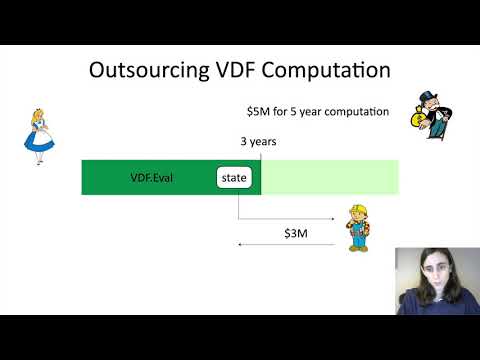CryptoDB
Continuous Verifiable Delay Functions
| Authors: |
|
|---|---|
| Download: |
|
| Conference: | EUROCRYPT 2020 |
| Abstract: | We introduce the notion of a continuous verifiable delay function (cVDF): a function g which is (a) iteratively sequential---meaning that evaluating the iteration $g^{(t)}$ of g (on a random input) takes time roughly t times the time to evaluate g, even with many parallel processors, and (b) (iteratively) verifiable---the output of $g^{(t)}$ can be efficiently verified (in time that is essentially independent of t). In other words, the iterated function $g^{(t)}$ is a verifiable delay function (VDF) (Boneh et al., CRYPTO '18), having the property that intermediate steps of the computation (i.e., $g^{(t')}$ for t' |
Video from EUROCRYPT 2020
BibTeX
@inproceedings{eurocrypt-2020-30225,
title={Continuous Verifiable Delay Functions},
booktitle={39th Annual International Conference on the Theory and Applications of Cryptographic Techniques, Zagreb, Croatia, May 10–14, 2020, Proceedings},
series={Lecture Notes in Computer Science},
publisher={Springer},
keywords={verifiable delay function;iteratively sequential function;PPAD hardness},
volume={12105},
doi={10.1007/978-3-030-45727-3_5},
author={Naomi Ephraim and Cody Freitag and Ilan Komargodski and Rafael Pass},
year=2020
}

